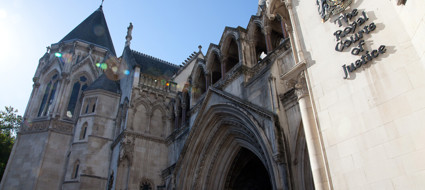At the 2024 State Opening of Parliament the King’s Speech included a commitment to modernise the Mental Health Act 1983 (MHA).
The announcement follows an independent review, and reforms will aim to ensure mental health is given ‘the same attention and focus as physical health’.
As reported in our Case Law and Legal Summaries, the Supreme Court has recently clarified the duty of local authorities to provide aftercare to people who have been detained under the MHA.
Where a person lives determines which local authority is required to meet their care and support needs under the Care Act 2014. In statutory guidance, this is known as ordinary residence.
Section 117 (s117) of the MHA requires the local authority where the person was ‘ordinarily resident’ before detention to provide aftercare, even when they are discharged to another local authority area.
A common question that the Supreme Court faced was which authority should be responsible after a person who is receiving out of area aftercare is detained and discharged for a second time.
Should the first local authority continue to be liable for their aftercare, or should they now be treated as ‘ordinarily resident’ in the second area, the one where they lived between the two periods of detention?
The Supreme Court found that the second local authority is legally responsible. When someone is detained for a second time under section 3 (or part 3) of the MHA, the original duty to provide them with aftercare ends because:
‘the section does not apply to persons who are (currently) detained’.
When they are subsequently discharged from the second detention, then the local authority where they were a resident ‘immediately before being detained’ the second time has the duty to provide aftercare.
It is now clear that when determining which authority is responsible for someone’s aftercare, the key question is:
‘where was this person ordinarily resident immediately before their most recent relevant detention?’
When answering the question, it doesn’t matter if the person had been initially placed in the area by a different authority as part of another aftercare duty or as a result of any other statutory duty. The court found that ‘the term “ordinarily resident” is given its usual meaning’. The only circumstances that prevent someone from being ‘ordinarily resident’ in the area where they physically reside are where they have been ‘forcibly detained [...] kidnapping and imprisonment, [and] compulsory detention under the 1983 Act’.
Practitioners should note that ‘ordinary residence’ for the purposes of s117 of the MHA does not follow ‘ordinary residence’ in the Care Act 2014 or Deprivation of Liberty Safeguards (DoLS). The MHA has priority. Section 39(4) of the Care Act requires that if someone is receiving s117 aftercare, then their ordinary residence for the purposes of the Care Act (or DoLS) is where it has been determined to be under the MHA.
In other words, a person will only ever have one ‘ordinary residence’ under all three pieces of legislation, but if the person is receiving s117 aftercare, then that single ‘ordinary residence’ is determined by the MHA.
At the moment, s117 aftercare does not appear to be a major priority for reform; however the governments legislation is at a relatively early stage and will undoubtedly change as it passes through Parliament.
The full summary of the Supreme Court’s reasoning is available in the Case Law and Legal Summaries.
Practitioners working in this area should find the judgment clarifies an area of law that had become uncertain.



